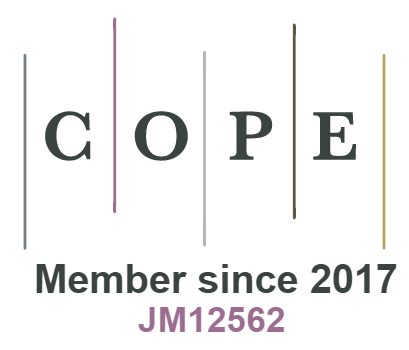Cloud-Based Genomic Data Analysis: IT-enabled Solutions for Biotechnology Advancements
DOI:
https://doi.org/10.18034/ei.v10i2.712Keywords:
Cloud Computing, Genomic Data, Data Analysis, Biotechnology, IT Solutions, Bioinformatics, Cloud-Based Systems, Genomics TechnologyAbstract
This study explores how cloud-based genetic data analysis can advance biotechnology in a revolutionary way. The primary goals are to investigate how cloud computing and genetic analysis might be integrated, assess system performance using case studies and performance measures, and look at potential future directions and policy consequences. Methodologically, reports, case studies, and current literature were synthesized using a secondary data-based review approach. Important discoveries demonstrate how cloud-based systems can improve genomic research's scalability, efficiency, and collaboration. However, issues to be resolved, such as the digital gap, ethical governance, and data privacy, are also important. The consequences of policy highlight the necessity of solid frameworks to protect personal information, close the digital gap, and advance moral research methods. Cloud-based genomic data analysis presents opportunities for biotechnology advancements and discoveries to be made faster. Still, it raises ethical, legal, and policy questions that must be carefully considered.
Downloads
References
Anumandla, S. K. R. (2018). AI-enabled Decision Support Systems and Reciprocal Symmetry: Empowering Managers for Better Business Outcomes. International Journal of Reciprocal Symmetry and Theoretical Physics, 5, 33-41. https://upright.pub/index.php/ijrstp/article/view/129
Baichoo, S., Souilmi, Y., Panji, S., Botha, G., Meintjes, A. (2018). Developing Reproducible Bioinformatics Analysis Workflows for Heterogeneous Computing Environments to Support African Genomics. BMC Bioinformatics, 19. https://doi.org/10.1186/s12859-018-2446-1
Dhameliya, N., Mullangi, K., Shajahan, M. A., Sandu, A. K., & Khair, M. A. (2020). Blockchain-Integrated HR Analytics for Improved Employee Management. ABC Journal of Advanced Research, 9(2), 127-140. https://doi.org/10.18034/abcjar.v9i2.738
He, K. Y., Ge, D., He, M. M. (2017). Big Data Analytics for Genomic Medicine. International Journal of Molecular Sciences, 18(2), 412. https://doi.org/10.3390/ijms18020412
Khair, M. A., Tejani, J. G., Sandu, A. K., & Shajahan, M. A. (2020). Trade Policies and Entrepreneurial Initiatives: A Nexus for India’s Global Market Integration. American Journal of Trade and Policy, 7(3), 107–114. https://doi.org/10.18034/ajtp.v7i3.706
Koehler, S., Dhameliya, N., Patel, B., & Anumandla, S. K. R. (2018). AI-Enhanced Cryptocurrency Trading Algorithm for Optimal Investment Strategies. Asian Accounting and Auditing Advancement, 9(1), 101–114. https://4ajournal.com/article/view/91
Langmead, B., Nellore, A. (2018). Cloud Computing for Genomic Data Analysis and Collaboration. Nature Reviews. Genetics, 19(4), 208-219. https://doi.org/10.1038/nrg.2017.113
Maddula, S. S. (2018). The Impact of AI and Reciprocal Symmetry on Organizational Culture and Leadership in the Digital Economy. Engineering International, 6(2), 201–210. https://doi.org/10.18034/ei.v6i2.703
Maddula, S. S., Shajahan, M. A., & Sandu, A. K. (2019). From Data to Insights: Leveraging AI and Reciprocal Symmetry for Business Intelligence. Asian Journal of Applied Science and Engineering, 8(1), 73–84. https://doi.org/10.18034/ajase.v8i1.86
Mullangi, K. (2017). Enhancing Financial Performance through AI-driven Predictive Analytics and Reciprocal Symmetry. Asian Accounting and Auditing Advancement, 8(1), 57–66. https://4ajournal.com/article/view/89
Mullangi, K., Maddula, S. S., Shajahan, M. A., & Sandu, A. K. (2018). Artificial Intelligence, Reciprocal Symmetry, and Customer Relationship Management: A Paradigm Shift in Business. Asian Business Review, 8(3), 183–190. https://doi.org/10.18034/abr.v8i3.704
Mullangi, K., Yarlagadda, V. K., Dhameliya, N., & Rodriguez, M. (2018). Integrating AI and Reciprocal Symmetry in Financial Management: A Pathway to Enhanced Decision-Making. International Journal of Reciprocal Symmetry and Theoretical Physics, 5, 42-52. https://upright.pub/index.php/ijrstp/article/view/134
Navale, V., Bourne, P. E. (2018). Cloud Computing Applications for Biomedical Science: A Perspective. PLoS Computational Biology, 14(6), e1006144. https://doi.org/10.1371/journal.pcbi.1006144
Ocaña, K., de Oliveira, D. (2015). Parallel Computing in Genomic Research: Advances and Applications. Advances and Applications in Bioinformatics and Chemistry, 8, 23-35. https://doi.org/10.2147/AABC.S64482
Patel, B., Mullangi, K., Roberts, C., Dhameliya, N., & Maddula, S. S. (2019). Blockchain-Based Auditing Platform for Transparent Financial Transactions. Asian Accounting and Auditing Advancement, 10(1), 65–80. https://4ajournal.com/article/view/92
Pydipalli, R. (2018). Network-Based Approaches in Bioinformatics and Cheminformatics: Leveraging IT for Insights. ABC Journal of Advanced Research, 7(2), 139-150. https://doi.org/10.18034/abcjar.v7i2.743
Pydipalli, R., & Tejani, J. G. (2019). A Comparative Study of Rubber Polymerization Methods: Vulcanization vs. Thermoplastic Processing. Technology & Management Review, 4, 36-48. https://upright.pub/index.php/tmr/article/view/132
Pydipalli, R., Anumandla, S. K. R., Dhameliya, N., Thompson, C. R., Patel, B., Vennapusa, S. C. R., Sandu, A. K., & Shajahan, M. A. (2022). Reciprocal Symmetry and the Unified Theory of Elementary Particles: Bridging Quantum Mechanics and Relativity. International Journal of Reciprocal Symmetry and Theoretical Physics, 9, 1-9. https://upright.pub/index.php/ijrstp/article/view/138
Qu, K., Garamszegi, S., Wu, F., Thorvaldsdottir, H., Liefeld, T. (2016). Integrative Genomic Analysis by Interoperation of Bioinformatics Tools in GenomeSpace. Nature Methods, 13(3), 245-247. https://doi.org/10.1038/nmeth.3732
Richardson, N., Pydipalli, R., Maddula, S. S., Anumandla, S. K. R., & Vamsi Krishna Yarlagadda. (2019). Role-Based Access Control in SAS Programming: Enhancing Security and Authorization. International Journal of Reciprocal Symmetry and Theoretical Physics, 6, 31-42. https://upright.pub/index.php/ijrstp/article/view/133
Rodriguez, M., Shajahan, M. A., Sandu, A. K., Maddula, S. S., & Mullangi, K. (2021). Emergence of Reciprocal Symmetry in String Theory: Towards a Unified Framework of Fundamental Forces. International Journal of Reciprocal Symmetry and Theoretical Physics, 8, 33-40. https://upright.pub/index.php/ijrstp/article/view/136
Rodriguez, M., Tejani, J. G., Pydipalli, R., & Patel, B. (2018). Bioinformatics Algorithms for Molecular Docking: IT and Chemistry Synergy. Asia Pacific Journal of Energy and Environment, 5(2), 113-122. https://doi.org/10.18034/apjee.v5i2.742
Sachani, D. K., & Vennapusa, S. C. R. (2017). Destination Marketing Strategies: Promoting Southeast Asia as a Premier Tourism Hub. ABC Journal of Advanced Research, 6(2), 127-138. https://doi.org/10.18034/abcjar.v6i2.746
Sandu, A. K. (2021). DevSecOps: Integrating Security into the DevOps Lifecycle for Enhanced Resilience. Technology & Management Review, 6, 1-19. https://upright.pub/index.php/tmr/article/view/131
Sandu, A. K. (2022). AI-Powered Predictive Maintenance for Industrial IoT Systems. Digitalization & Sustainability Review, 2(1), 1-14. https://upright.pub/index.php/dsr/article/view/139
Sandu, A. K., Surarapu, P., Khair, M. A., & Mahadasa, R. (2018). Massive MIMO: Revolutionizing Wireless Communication through Massive Antenna Arrays and Beamforming. International Journal of Reciprocal Symmetry and Theoretical Physics, 5, 22-32. https://upright.pub/index.php/ijrstp/article/view/125
Shajahan, M. A. (2018). Fault Tolerance and Reliability in AUTOSAR Stack Development: Redundancy and Error Handling Strategies. Technology & Management Review, 3, 27-45. https://upright.pub/index.php/tmr/article/view/126
Shajahan, M. A. (2021). Next-Generation Automotive Electronics: Advancements in Electric Vehicle Powertrain Control. Digitalization & Sustainability Review, 1(1), 71-88. https://upright.pub/index.php/dsr/article/view/135
Shajahan, M. A., Richardson, N., Dhameliya, N., Patel, B., Anumandla, S. K. R., & Yarlagadda, V. K. (2019). AUTOSAR Classic vs. AUTOSAR Adaptive: A Comparative Analysis in Stack Development. Engineering International, 7(2), 161–178. https://doi.org/10.18034/ei.v7i2.711
Vennapusa, S. C. R., Fadziso, T., Sachani, D. K., Yarlagadda, V. K., & Anumandla, S. K. R. (2018). Cryptocurrency-Based Loyalty Programs for Enhanced Customer Engagement. Technology & Management Review, 3, 46-62. https://upright.pub/index.php/tmr/article/view/137
Vukicevic, M., Radovanovic, S., Milovanovic, M., Minovic, M. (2014). Cloud-Based Metalearning System for Predictive Modeling of Biomedical Data. The Scientific World Journal, 2014. https://doi.org/10.1155/2014/859279
Yarlagadda, V. K., & Pydipalli, R. (2018). Secure Programming with SAS: Mitigating Risks and Protecting Data Integrity. Engineering International, 6(2), 211–222. https://doi.org/10.18034/ei.v6i2.709
Yerram, S. R., Mallipeddi, S. R., Varghese, A., & Sandu, A. K. (2019). Human-Centered Software Development: Integrating User Experience (UX) Design and Agile Methodologies for Enhanced Product Quality. Asian Journal of Humanity, Art and Literature, 6(2), 203-218. https://doi.org/10.18034/ajhal.v6i2.732
Ying, D., Patel, B., & Dhameliya, N. (2017). Managing Digital Transformation: The Role of Artificial Intelligence and Reciprocal Symmetry in Business. ABC Research Alert, 5(3), 67–77. https://doi.org/10.18034/ra.v5i3.659
Zhao, S., Prenger, K., Smith, L., Messina, T., Fan, H. (2013). Rainbow: A Tool for Large-scale Whole-genome Sequencing Data Analysis Using Cloud Computing. BMC Genomics, 14. https://doi.org/10.1186/1471-2164-14-425
Downloads
Published
Issue
Section
License
Copyright (c) 2022 Arun Kumar Sandu, Rajani Pydipalli, Jayadip GhanshyamBhai Tejani, Sai Sirisha Maddula, Marcus Rodriguez

This work is licensed under a Creative Commons Attribution-NonCommercial 4.0 International License.
Engineering International is an Open Access journal. Authors who publish with this journal agree to the following terms:
- Authors retain copyright and grant the journal the right of first publication with the work simultaneously licensed under a CC BY-NC 4.0 International License that allows others to share the work with an acknowledgment of the work's authorship and initial publication in this journal.
- Authors are able to enter into separate, additional contractual arrangements for the non-exclusive distribution of the journal's published version of their work (e.g., post it to an institutional repository or publish it in a book), with an acknowledgment of its initial publication in this journal. We require authors to inform us of any instances of re-publication.









